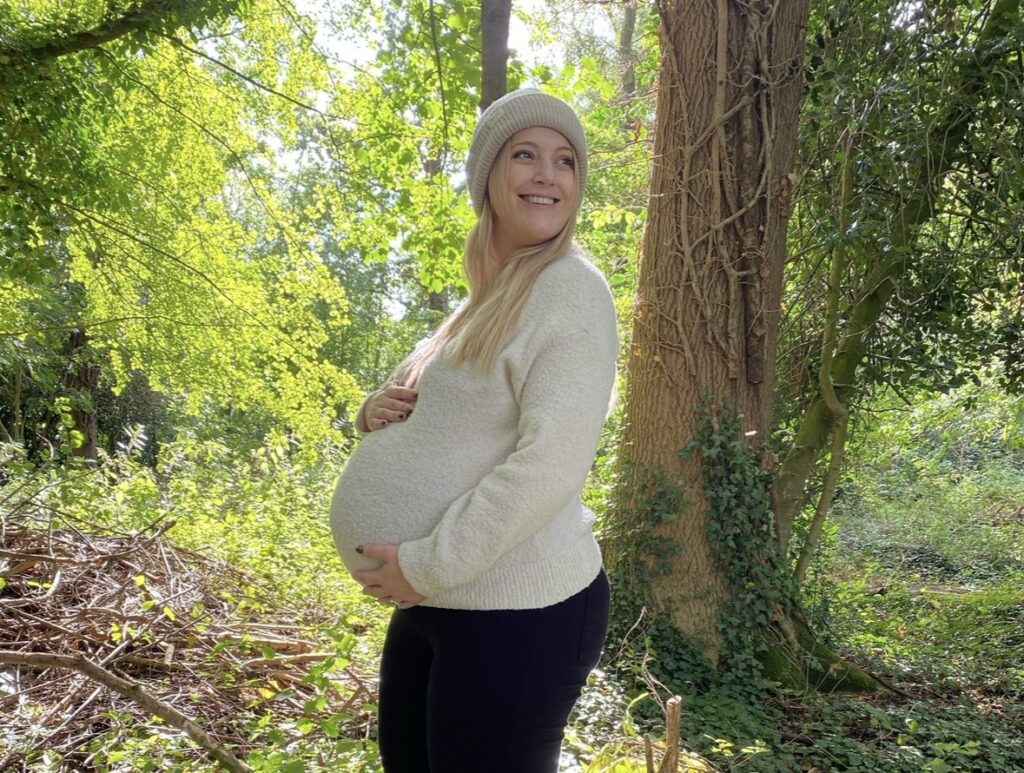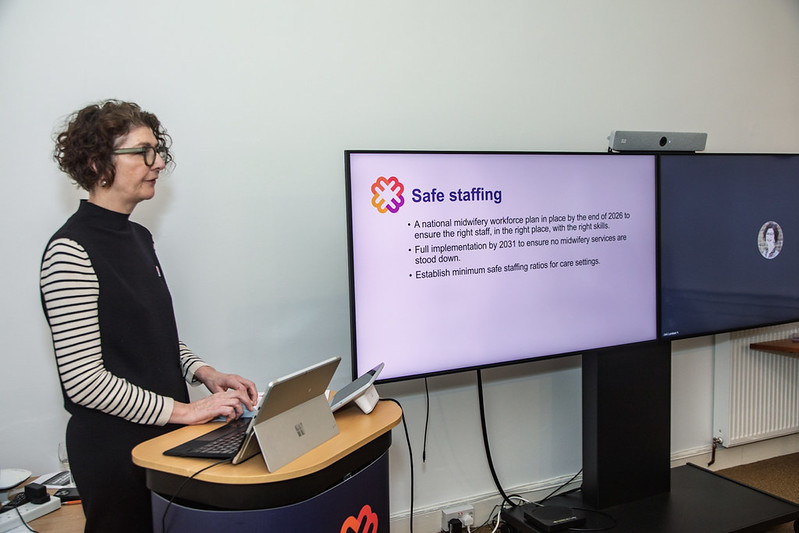For Rainbow Baby Awareness Week, Rachel Burn, Media Relations Officer at the Royal College of Midwives, shares her personal story of pregnancy after loss – and the vital role her bereavement midwife played in helping her navigate it.
When I saw a faint line on a pregnancy test, I had a panic attack.
My husband and I wanted nothing more than a sibling for our son Milo. But just four months earlier we had lost a baby, and I had complications that led to two surgeries. It was physically and emotionally painful and my mental health spiralled.
And now I was pregnant again, yet all I could think was: We’re going to lose this baby too.
I couldn’t imagine a happy pregnancy, or picture holding a healthy baby in nine months’ time. I even told myself I wouldn’t book a midwife appointment in case I “jinxed” it. But after a week of sleepless nights and relentless anxiety, I knew I needed help – both to face this pregnancy and to survive it emotionally.
I contacted the gynaecology sister at my local hospital – who had been a lifeline during my surgeries – and she referred me to the Trust’s bereavement midwife. I didn’t know this role existed in my area, but from my very first appointment with her I knew I had found the person who could help me process my grief and give me hope.
I had an appointment with her every fortnight and I could speak openly about my fears and anxieties, and slowly the weight of the world began to lift from my shoulders.
She also took practical steps to protect my mental health. Clinical settings were a big trigger for me, so she arranged for me to enter the antenatal clinic through a back entrance, away from the Gynae Assessment Unit where I’d received my treatments. Two weeks before my due date, she gave me a tour of the labour ward and helped me think about how to make the delivery room less clinical.
Scans were another source of anxiety – it was at a scan that we learned our baby had died – so she ensured the sonographers were always aware of my history before I arrived.
Because of my severe anxiety, I was also under the care of the perinatal mental health team. My bereavement midwife worked closely with my mental health nurse so that everyone involved in my care had the full picture. Together we created a “mental health birth plan” focused on making the birth as calm and positive as possible.
In October last year, my rainbow baby, Ozzy, arrived safely. My birth experience was a positive one – something I could never have imagined at the start of my pregnancy. I believe that the birth plan, along with the gentle exposure to clinical environments a few weeks beforehand, made all the difference.
A few hours after Ozzy was born, my bereavement midwife came to see me on the ward. I was so proud to introduce her to the baby she had walked beside me to meet – from those early fragile weeks when I was broken, to the moment I was holding my son in my arms.
I will always be grateful for my bereavement midwife’s care, compassion and advocacy.
To every midwife supporting women through pregnancy after loss: thank you. You help change a pregnancy from being endured to being embraced, and change lives more than you know.
- Rainbow Baby Awareness Week is an annual event that takes place from 16 to 22 August, culminating in National Rainbow Baby Day on 22 August. It is a time to raise awareness about pregnancy after loss and to celebrate the babies born after a miscarriage, stillbirth or infant loss.
- The RCM is holding a webinar – Equitable Bereavement Care: Culturally Responsive Midwifery in Perinatal Loss – on Wednesday 24 September. Join us in exploring how midwives and healthcare professionals can provide equitable, culturally responsive bereavement care in the context of perinatal loss. Hear directly from experts by experience who are actively advocating for change and discover how you can contribute to more inclusive and compassionate care. You’ll also gain insight into specialist services supporting bereaved families from a range of cultural backgrounds.


